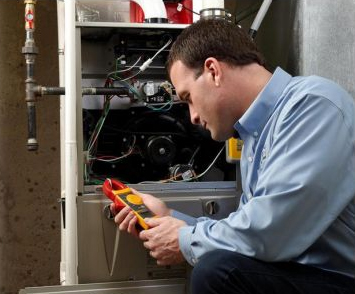As the cold season approaches many home owners are wondering how to reduce home heating costs in the winter. Now is a good time to check that your heating system is working effectively and have it serviced. You might also benefit from increasing insulation in your home or changing to a cheaper fuel source.
Heating System and Fuel Sources
Any heating system should be serviced once a year. It is important to hire a professional, certified contractor. If your equipment is 15 years old or older, upgrading it to a newer system is usually more cost-effective than running an old system.
Depending on your current fuel source you might be able to save money by switching to a more affordable source. The cheapest fuel sources include natural gas and geothermal heat pumps. Electricity, propane and oil are more expensive. The savings in heating costs will make up for the initial investment in natural gas or geothermal heat.
Insulation and Draft Tests
Make sure your home is insulated well and check the building for drafts. A lot of indoor heat is lost through drafts in windows and doors. Conduct a draft test and plug any leaks that are found in your home. The most efficient way to check the building for drafts is to hire a professional energy auditor. Leaks can be plugged with expandable foam, caulk or weather stripping.
Sealing your air ducts can save hundreds of dollars in annual heating costs. It is important to hire a professional to do the sealing. Cleaning the air ducts does not necessarily make your home a lot more energy efficient, although cleaning is important if you have found mold or dust.
One of the easiest ways to reduce home heating costs this winter is to set your thermostat to a slightly lower temperature. The average temperature in many homes today is 70° F, but lowering it to 68° F will help to lower heating costs. 68° F is a comfortable temperature and lowering room temperatures slightly can even be healthier for you. Follow us for more articles that keep your HVAC system running efficiently and saving you money!

